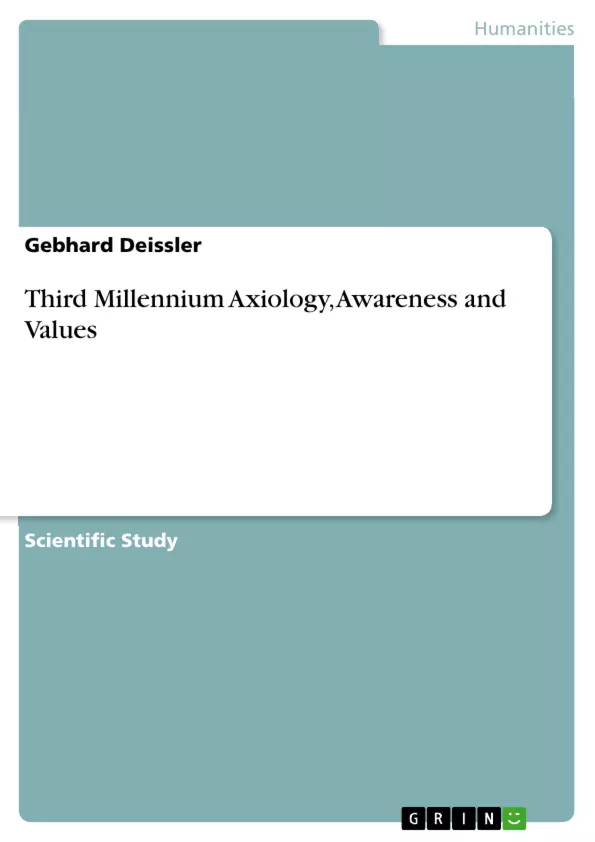A wider angle of spatiotemporal vision has allowed us to discover a complementary awareness of human affairs per se and in particular with regard to the management of planetary cultural values, ethics and awareness. Millennia of human thought on values, ethics and awareness across cultures have been linked to the most advanced scientific discoveries. The integrative thread that runs through it all can be identified and formulated as an all-integrative model and formula for the management of the diversity of human affairs at the present age.
Inhaltsverzeichnis (Table of Contents)
- Horizons of culture-specific values and ethics
- Horizons of culture-specific awareness and the quest for supreme cultural awareness
- Horizons of culture-general awareness, values and ethics
Zielsetzung und Themenschwerpunkte (Objectives and Key Themes)
This work explores the concept of transcultural management and its implications for the third millennium. It aims to analyze the relationship between axiology (the theory of value), awareness, and values across cultures, ultimately advocating for a more holistic approach to ethical decision-making. Key themes of the work include:- The influence of culture on ethical values and behavior.
- The role of cultural awareness in navigating ethical dilemmas.
- The potential for a universal framework of ethics based on a transcultural perspective.
- The importance of ethical decision-making for both individual and collective well-being.
- The challenges and opportunities presented by globalization and cultural diversity.
Zusammenfassung der Kapitel (Chapter Summaries)
Horizons of culture-specific values and ethics
This chapter explores the concept of axiology and its relationship to ethical decision-making. It examines how culture shapes our understanding of ethics and argues that ethical systems, whether religious, philosophical, or cultural, are inherently shaped by their respective contexts. The author emphasizes the role of cultural programming in shaping individual conduct and highlights the importance of managing such programming based on ethical assumptions.Horizons of culture-specific awareness and the quest for supreme cultural awareness
This chapter delves into the concept of cultural awareness, examining how it plays a crucial role in navigating ethical dilemmas. The chapter explores how culture shapes our perception of the world and how this perception influences our ethical choices. It emphasizes the need for a critical awareness of our own cultural biases and the potential for biases to influence our ethical decision-making.Horizons of culture-general awareness, values and ethics
This chapter explores the possibility of a universal framework of ethics that transcends cultural boundaries. It examines the potential for developing a more inclusive and nuanced understanding of ethical values and principles that can be applied across different cultural contexts. The author argues that such a framework would require a deeper understanding of different cultural perspectives and a willingness to engage in dialogue and collaboration across cultures.Schlüsselwörter (Keywords)
This text centers on the study of transcultural management and its implications for the third millennium. Key concepts include axiology, awareness, ethics, cultural programming, ethical decision-making, and the quest for a transcultural framework for ethical behavior. The text further delves into the influence of culture on individual and collective well-being, emphasizing the need for a critical understanding of cultural biases and the challenges and opportunities presented by globalization and cultural diversity.
Final del extracto de 70 páginas
- subir
- Citar trabajo
- D.E.A./UNIV. PARIS I Gebhard Deissler (Autor), 2011, Third Millennium Axiology, Awareness and Values, Múnich, GRIN Verlag, https://www.grin.com/document/182055
Leer eBook



